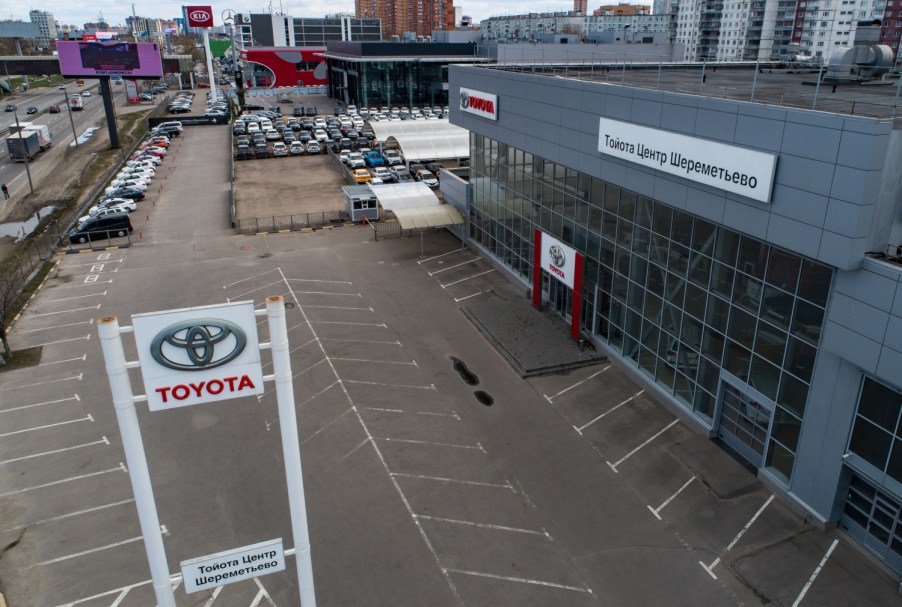
Toyota Global Sales Plunge 16%, Produced Only 512,765 Vehicles in September
Article highlights for Toyota global production numbers in September:
- Toyota global production in September fell by more than a third comapred to 2020
- Supply chain and semiconductor chip issues continue
- Sales fell for the the first time in 2021
Even though Toyota knew it was coming, the sales numbers for the worldwide production of new cars fell by more than a third in September.
Toyota global production was down in September, as anticipated

Last month, Bloomberg reported that Toyota produced 512,765 around the world. That was down from 841,915 in September 2020. Toyota saw a 16% drop in the automaker’s global sales, the first year-over-year drop in 13 months. In August, it was announced that production would be cut by 40% or around 360,000 vehicles due to supply issues. This number is just a bit lower than that estimate, coming in at 329,150 vehicles.
Toyota was not alone in this measure, joining Honda, Nissan, and others. The production cut was in response to COVID-19 cases and supply chain issues, making it harder to staff production plants. Nissan’s global production was down 28% last month, with a 21% drop in sales. Honda’s worldwide output fell for the fourth month in a row, showing a 30% decrease.
Toyota is aiming to increase production for November, still down 15%
Bloomberg notes that Toyota aims to boost production, hoping to produce 850,000 to 900,000 units in November. This is up from 2019 and 2020 production numbers, even though the parts shortages have not dissipated. In 2019, Toyota produced 773,551 units. This was up to 828,066 in 2020. This is still a 15% production cut over the anticipated 2021 numbers, aiming at one million produced vehicles.
At this point, Toyota is maintaining the goal of nine million units produced for the entire year. “The company said its efforts to meet this target are being helped by smaller-than-anticipated production cuts in September and October and the easing of Covid-19 restrictions in Southeast Asia.”
Toyota seems to have a positive outlook on November and December production, given the slowdown in the last few months. The automaker saw a 3.4% rise in share price last week, which brings this year’s total share price up 28%. Toyota was able to stockpile more semiconductor chips than other automakers, allowing it to have an advantage over others.
Ford, Dodge, Jeep, and every other automaker are suffering
Ford has seen a variety of issues stemming from similar problems. The automaker plans to pause production on vehicles like the Ford Bronco Sport, Mustang, and F-150. The company announced that it would likely produce one million fewer cars in 2021 than usual. Jeep and Dodge planned layoffs and closures of the production plant to make up for the lack of semiconductor chips. Dodge says the Durango might be in short supply while Jeep’s Grand Cherokee might suffer the same fate.
No automaker has been immune to coronavirus-related issues. Some have decided to prioritize production on certain vehicles, like the 2022 Toyota Tundra. It looks like there is a light at the end of the Q4 tunnel, but no one is ready to celebrate yet.



